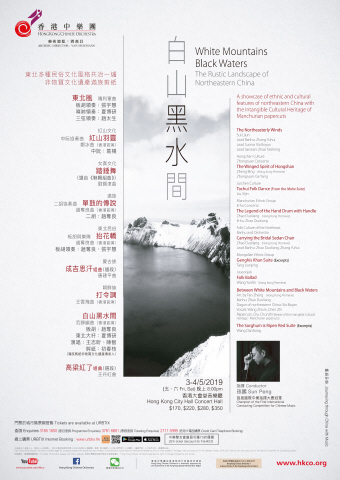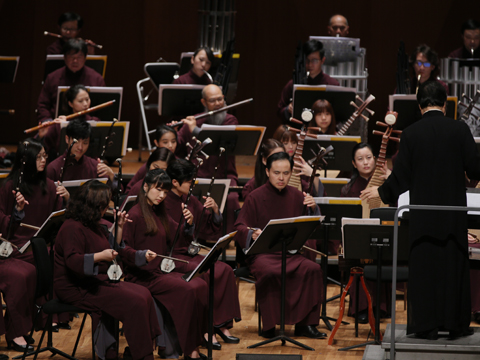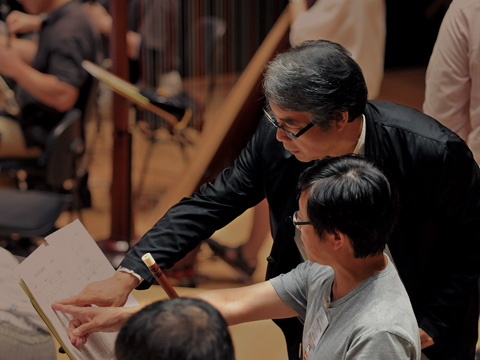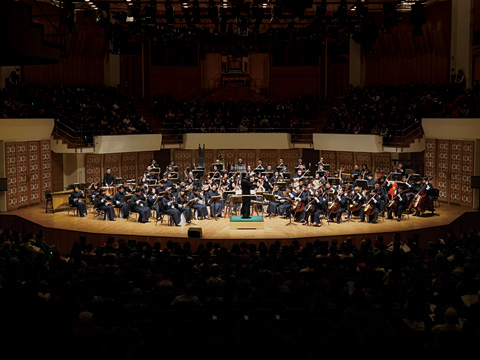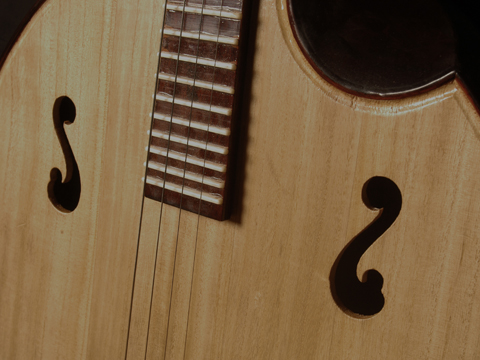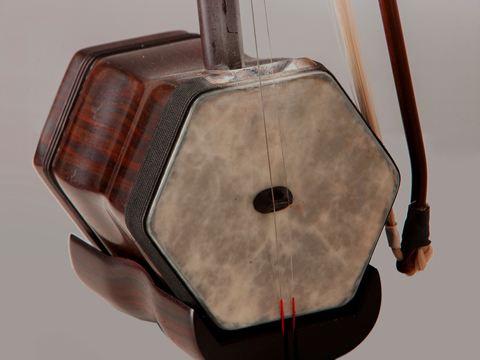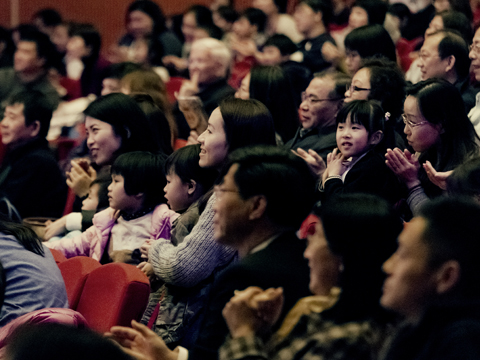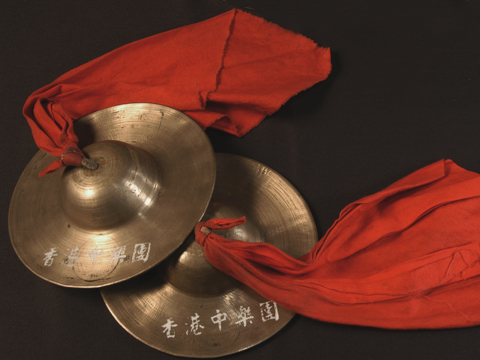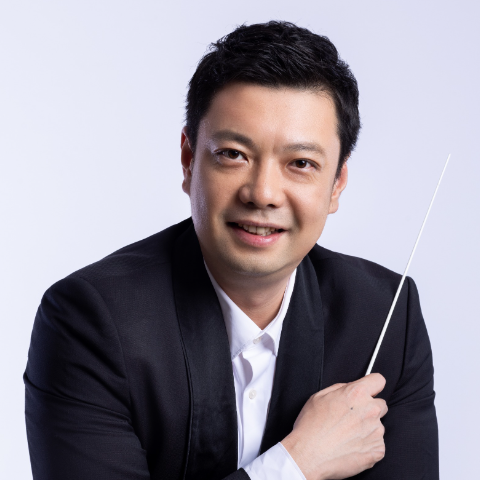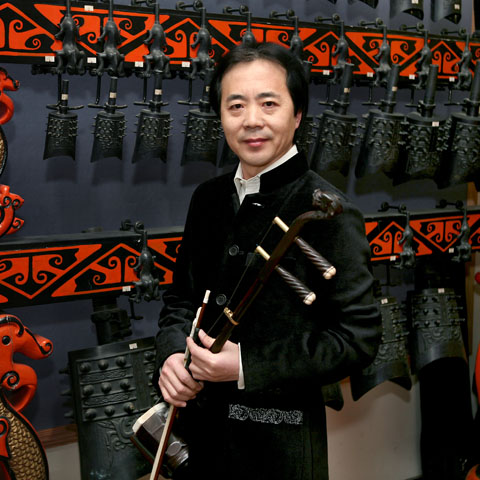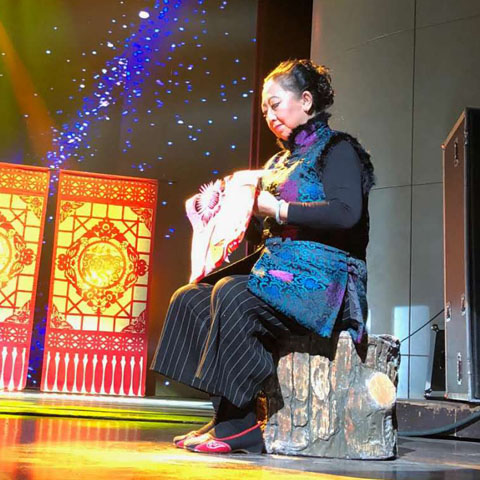White Mountains, Black Waters – Music of Intensity and Honest Rusticity
Chow Fan-fu
The title of the concert ‘White Mountains, Black Waters’ clearly points to Changbai Mountain and Heilongjiang River in the northeastern provinces of China. But apart from its reference to the great expanse between the mountain and the river, it also highlights the intense and almost black-and white contrast characteristic of its rustic folk culture and custom, which also constitutes the major attractions of this concert.
As China is vast in both expanse and population, its traditional music is often a function of regional and ethnic variations and differences in culture and custom. The northeastern region comprises Jilin, Heilongjiang, the northern part of Liaoning and the eastern part of Inner Mongolia, thus forming a natural melting pot for the Manchurian and Han ethnicities. In addition, the culture and custom of the Jurchen, Mongolian and Korean ethnic groups are also merged in this area; whether it is folk music, dance music or instrumental music, the overall music style is basically intense and rustic, heroic and passionate, although it does not lack smooth and delicate expression of emotions.
Content and source of material
The nine pieces that feature in this concert titled ‘White Mountains, Black Waters’ are the works of eight composers.
The Northeasterly Winds by Sui Lijun is a Chinese orchestral piece borrowing heavily from the tune of the northeastern errenzhuan, a folk song-and-dance duet.
The inspiration and subject matter of The Winged Spirit of Hongshan by Zheng Bing come from the Hongshan Culture of the Chaoyang area in Liaoning Province.
Tachui Folk Dance by Liu Xijin is the last of the six-piece Mohe Suite, which was re-arranged from his dance drama, Princess Bohai, for Chinese orchestra. As the title suggests, it is a festive dance music of the Mohe people.
The Legend of the Hand Drum with Handle, an erhu concerto by Zhao Duoliang, is titled after the Manchurian musical instrument dangu used in ritual worship by the shamans. Both the content and the shaman’s dance rhythm featured in the music invoke rich Manchurian colours and ambiance. His other work Carrying the Bridal Sedan Chair featuring the banhu and the orchestra is inspired by the set tune, Xi-Bai-Tang (The Happy Wedding Ceremony). The original solo by the mezzo soprano banhu is now replaced by two banhus for this concert.
Genghis Khan Suite, the last piece in the first half of the concert, has five movements re-structured and re-arranged from its composer Tang Jianping’s original suite which contains thirteen movements. The piece uses Mongolian musical features such as the urtiin duu (long song) and the khoomi to showcase Mongolian culture and custom through the legendary figure, the great conqueror Genghis Khan.
The first piece to feature in the second half is Wang Yunfei’s Folk Ballad, which fuses Korean folk songs with modern musical elements and composition techniques. The unique dance rhythm maintains clearly its Korean origin.
The titular piece, Between White Mountains and Black Waters, adapted by Fan Zheng, has six movements, each with a clear heading. The first, Prelude: Muti-tempi, is divided into four parts, each also with its own caption. The music is all sourced from traditional and folk music but treated with a new music idiom and instrumentation re-arrangement.
In the finale, Wang Danhong’s The Sorghum is Ripen Red Suite (Excerpts), the three movements depict the interminable life force of the people of the ‘black earth’. The music is rooted in the errenzhuan and yangge (harvest song) musical traditions of the northeastern region.
A challenge for the Conductor: similarities and differences of the nine works
Be it content, subject matter, or musical building blocks, all nine pieces are closely linked to the musical tradition characteristic of the cultural circle of the northeastern provinces. Yet, as to the treatment of content and subject matter, especially composing techniques in the selection of material from traditional music works, and the pursuit of aesthetic rigour, the composers show immense differences from one another. As such, despite these nine pieces being all referenced to white mountains and black waters, their resulting end-products are not quite the same. It would be a big challenge for the conductor to come to grips with their similarities as well as differences.
Nonetheless, Sun Peng, winner of the International Conducting Competition for Chinese Music, was born and bred amidst the white mountains and black waters. From a very early age, he was immersed in its intense and rustic musical style. It can be expected that he will be able to unite the several instrumentalists and paper-cutting experts with his baton to paint a sweeping and splendid picture of the northeastern region.
